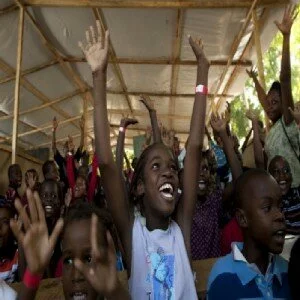In anticipation of World Malaria Day 2015, Nigeria will distribute treatments to prevent malaria to approximately 792,000 children under the age of 5 within the Zamfara and Sokoto states this year. Approximately 25 million children live in Sahel, a region that is experiencing a rise in malaria cases.
In light of this, the World Health Organization (WHO) has recommended that health professionals use seasonal malaria chemoprevention (SMC) to prevent the spread of the disease.
“In 2013 we worked with the National Malaria Elimination Program (NMEP) on the project, providing SMC to 170,000 at-risk children,” country director for Malaria Consortium Nigeria Kolawole Maxwell said. “This approach was well-received and resulted in a 70 percent reduction in all-cause presentation of fever in monitored health centers. We will strive to build on these encouraging results and apply the lessons learned from the pilot to our new project. It is a great opportunity to continue to work with the NMEP, promoting government ownership and sustainability of these and future SMC interventions.”
Health professionals from Achieving Catalytic Expansion of Seasonal Malaria Chemoprevention in Sahel (ACCESS-SMC), led and funded by Malaria Consortium and UNITAID, have offered 15 million treatments for 2015 and 30 million more treatments for 2016. They plan to continue these services for the benefit of future generations.
“Our collaboration with Malaria Consortium for the ACCESS-SMC Project provides more than the opportunity to scale up SMC in the Sahel region of the country,” NMEP Nigeria’s SMC focal point Agbo Emmanuel said. “By participating in this project, we have the opportunity to meet with the seven other implementing countries, share experiences, discuss challenges and lessons learned with SMC partners and stakeholders.”





No Comments